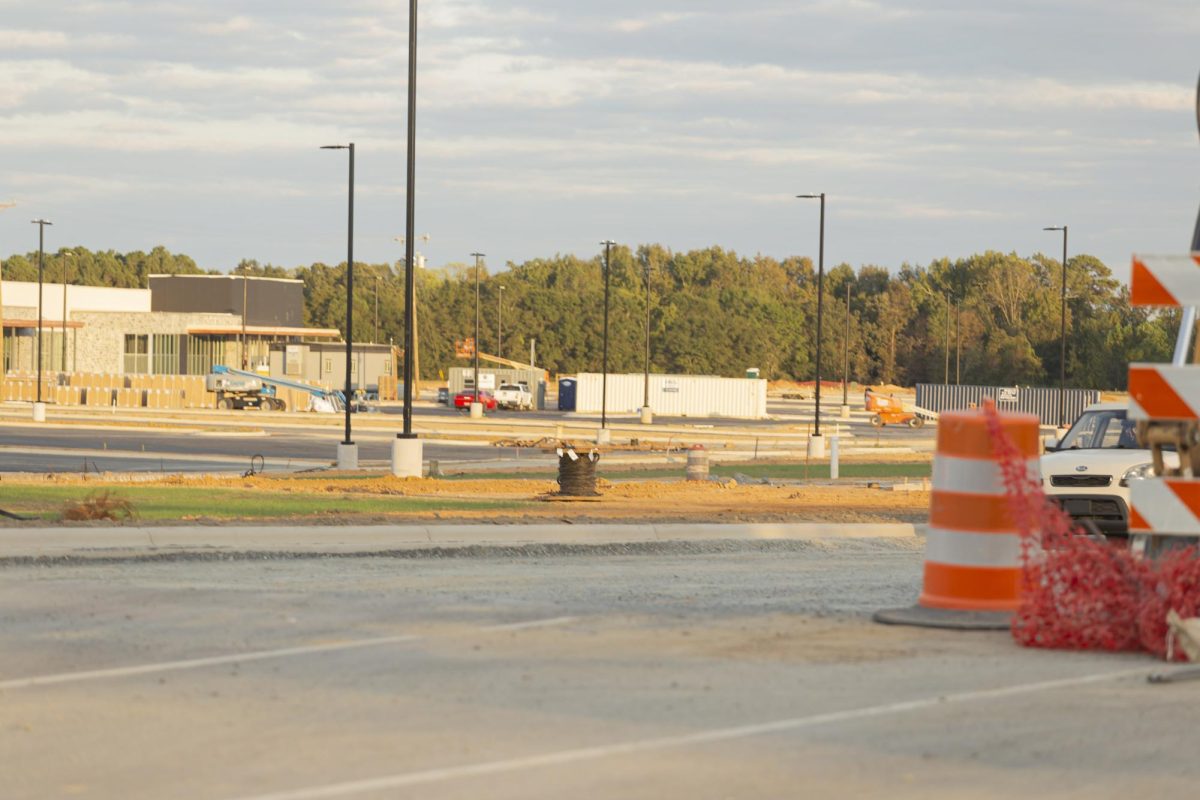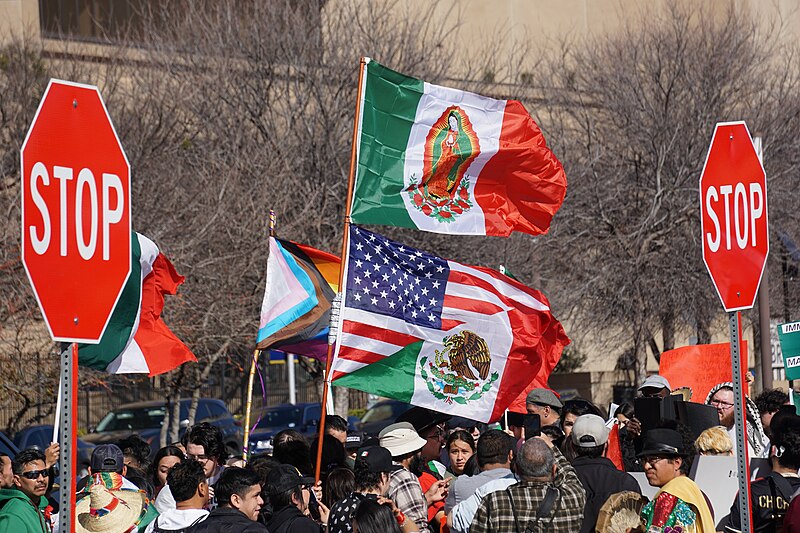On Jan. 20, 2025, Donald Trump was inaugurated as the 47th president of the United States. In his first days in office, Trump took swift action on immigration, making it clear that mass deportations would be a central part of his administration’s strategy.
During a conference for House Republicans in Miami, Trump suggested that those who had been arrested “many, many times” should be removed from the U.S. and he hinted at negotiating with foreign countries to house American prisoners. His reasoning for this is that it will help save the U.S money on the prison system.
Shortly after his swearing-in, Trump signed a series of executive orders aimed at increasing immigration enforcement. The orders have set the stage for an unexpected crackdown on illegal immigration. One of the most significant measures includes deploying the U.S. military to the southern border near Mexico. Additionally, the ability for migrants to schedule advance appointments with border officials has been eliminated, and parole programs have been suspended. Under this new policy, migrants must wait in Mexico while their cases are processed.
According to The Washington Post, Immigration and Customs Enforcement (ICE) officials have been instructed to aim for 1,200 to 1,500 arrests daily, with each of ICE’s field offices required to make at least 75 arrests.
NBC News reports that cities with large immigrant populations, such as Chicago, New York, Los Angeles, Denver, and Washington, D.C., are expected to be among the first areas targeted for mass deportations. In particular, cities with large immigration shelter systems, such as Los Angeles, Denver, and Miami have been flagged as primary targets in the campaign.
Despite President Trump’s assertions that migrants involved in criminal activity would be prioritized for deportation, his administration has suggested that all undocumented individuals are now at risk of removal. Previously, immigration officials were limited to processing migrants for expedited removal only if they were apprehended within 100 miles of the border and had been in the country for less than two weeks. Under these new rules, the range for deportations has expanded significantly.
“We want our border secure, and we want these violent criminals removed from our communities,” said Senator Ted Cruz (Republican Senator of Texas). “Too many Americans are losing their lives. Too many children are being victimized. The president has really hit the ground running.”
Senator Rick Scott also praised Trump’s efforts, emphasizing that the deportations are a necessary step in protecting American citizens from violent crime.
The American Immigration Council estimates that the cost of deporting all 11 million undocumented immigrants currently residing in the U.S. would amount to $315 billion. This is a staggering figure that raises concerns about the long-term financial implications of such an aggressive policy.
The mass deportation efforts have already sparked tensions with countries that are being asked to accept deported migrants. Colombia and Mexico in particular have denied U.S. demands. The White House recently announced that Colombia had backed down from its promise to block military deportation flights after Trump threatened tariffs and economic sanctions against the country.
Sophomore Sean Phillips said, “In a way, it could be beneficial. It could be positive to help with illegal immigration, but what’s happening right now isn’t positive, as it is everywhere. You can’t avoid it.”
Since 2023, the number of deportations have more than doubled. With over 250 thousand deported, with 10 months of the year remaining.
Sophomore Isaac Howard said, “The idea is good for the country overall, but they deport the wrong people and the parents, leaving kids with no parents. People should come here legally, but we should have some grace. If they are contributing to society, then they are fine.”
They were told the amount spent by the U.S on deportation.
Howard said, “It’s way too high, especially with the cost of living,”
“It’s very insane, especially considering our healthcare system,” said Phillips.
Now, previously off-limits places like religious institutions and safe houses are considered able to be raided for illegal immigrants.
“It’s a church, it should be sacred,” said Phillips.
Some church leaders worry about religious freedom and say the change is making people afraid to come in and worship.
Oppositely, Howard said,“That’s fair, all places should be under the same law.” The mass deportation strategy has sparked fierce debate. Supporters argue that it is a necessary measure to protect American citizens and secure the southern border. Opponents, however, warn that it will tear apart families, disrupt communities, and place a heavy financial burden on the working class.






































